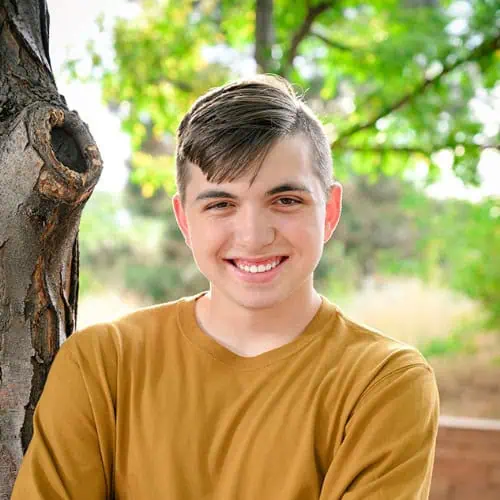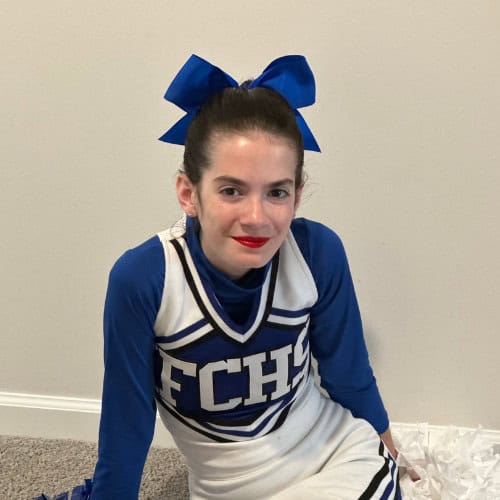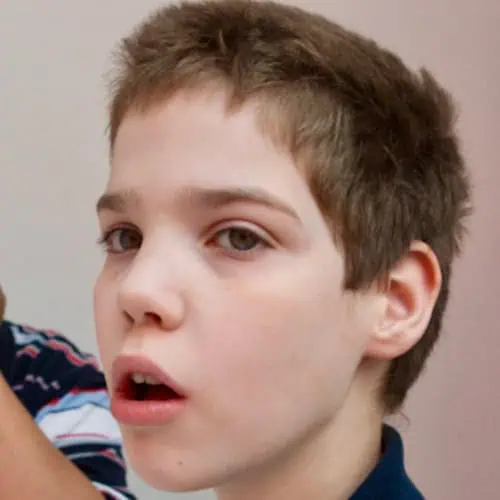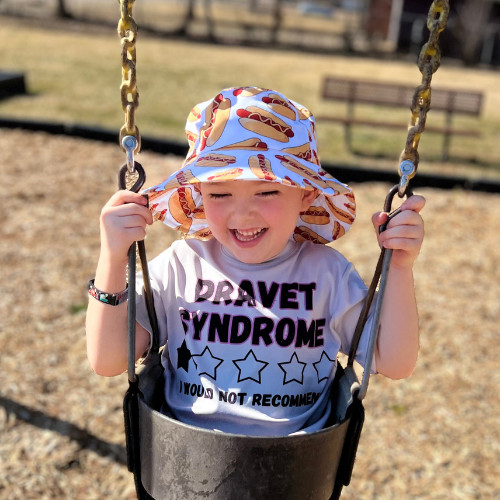Sarah Reyes
Allen, Texas
Can you share your journey of receiving your loved one’s diagnosis of Dravet syndrome?
Hayden Stella Reyes was a healthy 5 pounds 11-ounce little girl born on March 25, 2014. She was just four months old when she had her first seizure. We were getting her ready for her second day of daycare when I noticed she started to convulse on one side of her body. Somehow, I immediately knew what was going on even though I had never seen a seizure quite like it before. Her seizure lasted about an hour, and she was transferred to Children’s Hospital in Dallas for a full work up and tested for several conditions. We were sent home with no answers, but the seizures kept coming and they were closer together, having 3-4 smaller seizures in 3 weeks. After the third status seizure we were very blessed to get Dr. Sirsi as our Neurologist. She immediately knew that she was probably looking at a child that had Dravet syndrome. After genetic testing at 7 months old, we found out that Hayden has Dravet syndrome.
What are some of the biggest challenges you’ve faced as a caregiver?
Being a caregiver to a 10-year-old with Dravet syndrome is incredibly challenging, as the constant need for monitoring due to unpredictable seizures creates an intense level of stress. The physical and emotional demands can be exhausting, especially with managing medical appointments, therapies, and medications. It also requires balancing daily care with trying to create a sense of normalcy for your child and the rest of the family. The unpredictability of seizures often leads to feelings of isolation and worry about the future.
How has Dravet syndrome impacted you and your family's daily life and routine?
Dravet syndrome has had a huge impact on our family’s life and routine. We’ve had to adjust everything around Hayden’s seizures and seizure triggers, which means plans can change in an instant due to medical emergencies. It’s hard on all of us, especially for Evelyn and Cole, who sometimes feel like they don’t get enough attention because so much focus is on Hayden’s care. The constant stress and worry make it exhausting at times, but we do our best to create a sense of normalcy.
What advice would you give to a new caregiver whose loved one has just received a Dravet syndrome diagnosis?
If I could give advice to a new parent whose child was just diagnosed with Dravet syndrome, I’d tell them to take things one day at a time.The road ahead can be tough, but connecting with other families who understand what you’re going through is invaluable. Don’t be afraid to ask for help and take breaks when you need to. Educate yourself about the condition, and trust that you’ll become your child’s best advocate. Most importantly, celebrate the small victories and cherish the special moments.
Are there any specific resources, organizations, or individuals that have been particularly helpful to you?
Dravet Syndrome Foundations, Children’s Hospital in Dallas, epilepsy foundation, dravet caregiver Facebook group
What moments or achievements have brought you hope and joy despite the challenges?
Watching Hayden join CheerAbilities and seeing the excitement on her face when she’s with her team is priceless. It’s been amazing to see her form friendships and connect with other kids, which always reminds me that she’s not defined by her diagnosis. The fact that she’s able to go to school and experience a bit of normalcy, despite everything, gives me hope for her future.
How do you manage the stress and emotional strain that comes with caregiving?
To relieve stress I try to carve out time to be with family and friends. Taking breaks to watch my favorite shows is another way I unwind, letting me escape the demands of caregiving for a little while. I also try to find small moments for self-care, whether that’s enjoying some quiet time or simply taking a walk.
In what ways has Dravet Syndrome Foundation (DSF) supported you and your family?
The Dravet Syndrome Foundation has been an incredible source of support for our family. They’ve provided us with valuable resources and information, helping us better understand Hayden’s diagnosis and how to manage it. The foundation also connects us with other families who are going through the same journey, creating a strong sense of community and comfort. Attending events like the Dravet Foundation Conference has given us access to expert advice and the latest research, which helps us stay informed and hopeful about new treatments.
What message or piece of wisdom would you like to share with the broader Dravet syndrome community?
Lean on each other for support, celebrate the small victories, and never stop advocating for your child. Our community can raise awareness, push for better treatments, and keep hope alive for all of our warriors.
Can you describe a moment when you felt particularly supported by DSF and/or the Dravet syndrome community?
My family felt most supported by DSF in the early years when Hayden was having so many seizures and we didn’t know what the future held. Everyone was so welcoming, open to communication, and made me feel like I was part of this community that would do anything for one another. Any questions I had were always answered and everyone had the kindest things to say to help me keep going when I felt like I didn’t know if I could handle anymore.














